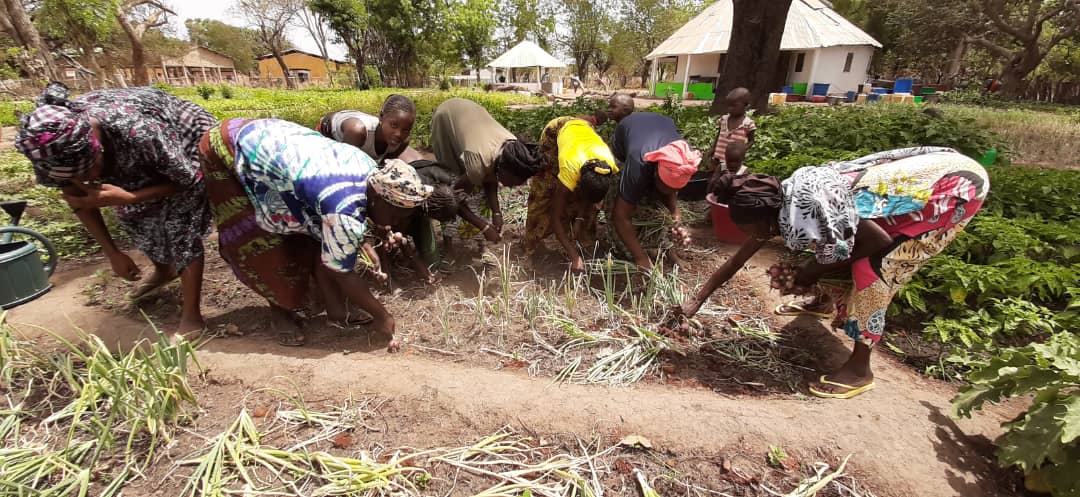Photo: UNDP, 2022
Boé, despite being a historic city considered one of the most important during colonial times, is nowadays a shadow of its old glory, that is both difficult to access and with scant infrastructural development. This has made it one of the poorest regions in Guinea-Bissau. Scarcity of basic products necessitate a long and often times difficult journey to the city of Gabú, some 83 km away, to buy essential commodities.
In recent times, locals, comprising mainly of young people have mobilized and set up an Association of Young Defenders of the Boé Environment (AJDA BOÉ) to train as many of their counterparts as possible as well as women on the implementation of forestry, horticultural and fruit nurseries for the conservation and regeneration of rare species of plants found in the region. Capacity building activities to train 110 women on horticultural techniques, grafting and restoration of threatened land, forest and wild fruit nursery building of plants from different adaptable families has seen major changes in how people value the ecosystem and use protection measures to sustain it. Through its efforts, 3 hectares of land has been sealed off and allocated to the project dedicated for building nurseries and vegetable gardening that aims to respond to some of the most important needs of the community of Boé.
During the month of October and November after clearing the land and sowing the different essential crops needed by the community, a team from the Na Nô Mon Platform paid a visit to assess the work in progress, and learn about the difficulties being faced in their discharge. The women displayed their joy with a rousing welcome of the team. They lauded the initiative for being the first one to include them and recognized their full potential as equal contributors in the development of their community.
Djuldé Embaló one of the beneficiaries of the project said that in addition to the economic factor, her diet has completely changed thanks to the project. Embaló gave an example of the amount of pepper they were able to produce, and stated that since 1998 they have not grown onions in their community.
‘Today, the results are clearly visible, in terms of horticulture, women have already begun to reap the fruits of their labour. This project, by boosting the local economy and improving the diets of community members, means that many parents and guardians will be able to invest more in the education of their children, guaranteeing them a better future,” she concluded.
The fact that this project is being implemented in parallel with the construction of the Boé market (both financed by the Na Nô Mon Platform), specifically in Beli, some of the main problems of the area, such as food conservation, trade and the valorization of local products, could be overcome.
What is expected with the implementation of these projects is that the villages can have an economic input, be more connected in terms of trade, and contribute to the process for the development of Boé.

 Locations
Locations







